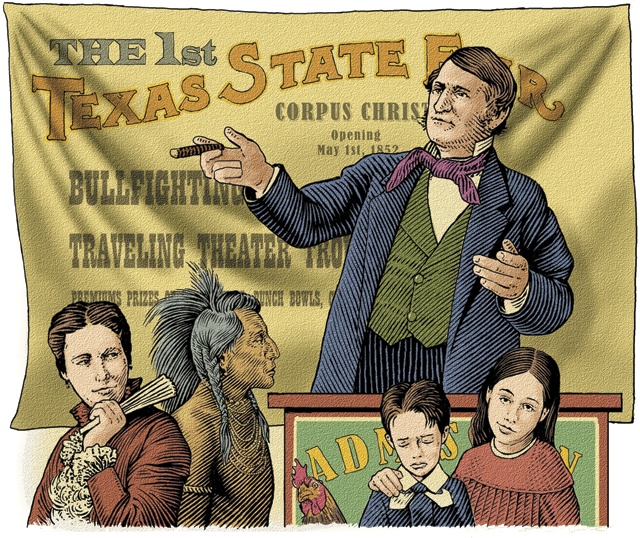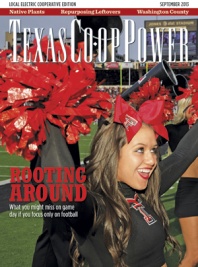For a while, Henry Lawrence Kinney owned some of the prettiest and most pristine land in Texas, but he didn’t know what to do with it. He wanted to sell it, but the people coming to the pretty but isolated port city of Corpus Christi in the mid-1800s weren’t stopping and they weren’t buying any of the surrounding land. They were headed for the gold fields of California.
The vast prairie of the best grass anybody had ever seen—land that would become the foundation of the King Ranch—interested them not at all. Kinney’s solution was to stage a state fair, the first in Texas, featuring all manner of bread and circuses as a way to bring tens of thousands of people (and potential land buyers) to the area. They would come for the fair, buy some land and stay—or not, just as long as they bought some land.
That first fair featured a couple of true visionaries, but it can be debated as to whether Kinney was one of them. He comes across as more of a schemer than a visionary. He called himself Colonel, citing service in the Seminole War in Florida, though no evidence of that has ever been found. He and partner William A. Audrey founded what would become Corpus Christi in 1839 when they established a trading post in what is now the city’s downtown.
In addition to advertising in newspapers, Kinney sent out some 20,000 handbills all over the world announcing that a state fair would begin on May 1, 1852, in Corpus Christi. He estimated an attendance of 20,000 to 30,000 people and advertised far and wide that the “largest stock of improved cattle, horses, etc.” would be available at an agreeable price, according to a story on the fair by Hortense Warner Ward in the October 1953 Southwestern Historical Quarterly.
Kinney planned as if he believed it. The little community on the bay was suddenly a spectacle of construction. A racetrack was laid out. Bullfights, cockfights, fireworks, a circus and performances by a traveling theater troupe were planned and subsequently staged. And there would be prizes: coffee urns, punch bowls, sugar baskets, pitchers, goblets, tumblers andcups and more.
As great as Kinney made it sound, only about a tenth of the people he anticipated actually showed up. Getting to Corpus Christi over land, or even by boat, was no easy task in the 1850s. The pleasant little city on the bay was just too isolated.
Judged from a financial viewpoint, the fair was a colossal failure. The Texas Republican opined that “the fair did not meet public expectation” and that “the award of premiums was not received with entire satisfaction.” The paper also declared the bullfights to be “humbug.”
But the fair was not a total bust. Gail Borden, later to become rich and famous as the inventor of condensed milk, was there and won a prize for one of his early and lesser-known inventions, the meat biscuit. A correspondent for the New Orleans Delta described “elegantly dressed American and Mexican ladies, flirting their fans with the same coquetry that they would at an opera” mixing and mingling with frontiersmen, Comanches, Apaches and Mexican vaqueros.
Rather than rescue Kinney from debt, the fair plunged him deeper into a financial spiral of lawsuits and repossessions. He later tried to establish a colony in Nicaragua with about the same success he had with the state fair. He moved to Mexico during the U.S. Civil War and died there during a gunfight between two rival factions.
Some fair attendees, such as Borden, fared much better. A prosperous and adventurous steamboat captain named Richard King was in Corpus Christi with his good friend H.K. “Legs” Lewis, who was in charge of the prizes to be awarded at the fair. On their way there, King and Lewis chose a pretty little spot on Santa Gertrudis Creek as the site of a future cattle operation. That was the beginning of the King Ranch.
As a scheme to make money, the first state fair of Texas was a disaster. As a vision, Kinney had the right idea but at the wrong time and in the wrong place.
There wouldn’t be another state fair in Texas for 34 years.
——————–
Clay Coppedge is a frequent contributor.


